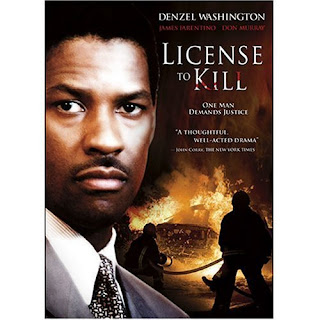Officially speaking, today is the day when folks who’ve got through to the next round of the BBC Writersroom Sharps competition will get that bit of good news. So I suspect I won’t be the only person who’ll be checking their e-mail Inbox a fair bit today. Fingers crossed, and good luck to everyone else who entered – do let me know if you get through.
As David points out, the odds are actually quite good for Sharps entrants – Writersroom received around 600 scripts, and with 20 places in the next round, on a mathematical basis alone that gives each entrant a 1 in 30 chance. Inevitably, I liken this to being the one child chosen out of your class for something special, though that estimate of class size might just show how horribly out of touch with the kids I am.
However, as I said when Sharps was announced, I do wonder if Writersroom might have set themselves a very tight timescale in relation to notifying the next-stagers – the deadline was noon this Monday, and people are due to be told today if they’ve got through, which certainly needs a swift turnaround. I’ve had some reassurance in that they sent me an e-mail to acknowledge my script had been received, but I know that some other people (such as Lucy) haven’t yet heard – indeed, the Writersroom blog has actually asked that people who haven’t heard by next Monday let them know as much. I am, though, a little bemused how this will work, what with today being Announcement Day… hmm. Anyway, I guess they must have found a way to make it so folks aren’t penalised due to postal hassles. Certainly have to hope so.
In other BBC writing-related news, it seems that the aformentioned Writersroom is going on tour – click here for more details (though once again it was on David’s blog that I first read about this. Credit where it’s due).
If you can’t be bothered to click the links (which is understandable, as I’m well aware this post’s awash with them – and there’ll be several more before it’s over), then Edinburgh-dwelling writers should be aware that the BBC Writersroom will be visiting the Traverse Theatre next week, on Tuesday 24th June, between 5pm and 6.30pm. If you want to go, you need to be on the guest list, which you can do by e-mailing writersroom@bbc.co.uk.
For non-Edinburgers like me, there are also roadshows planned for Belfast, Birmingham, Brighton, Bristol, Cardiff, Leicester, London, Manchester and Sheffield, so it’ll be a case of keeping an eye out for announcements on the BBC Writersroom homepage, but I think it’ll be worth it. I certainly intend to go to the London one if I can.
Moving into the realms of non-BBC writing stuff, my entry for the Waterstones ‘What’s Your Story?’ competition is now available to view online. Click here and then go to the Gallery, where you can either see it on page 13 (well, that’s where it was last night) or you can search for it by my surname. If you do the latter, then I also recommend you search for the entries by Jason Arnopp and Laura Anderson, two friendly folks from the world of the blogternet who, as you can see, are not exactly shabby when it comes to the ol’ writing business.
My entry, I hasten to add, features a guest appearance from the left hand of my lovely fiancee; her engagement ring is just visible, which I hope will help scotch those rumours that I got her a ring from a gumball machine outside the newsagent. Though oddly enough, she seems to feel that giving her more shiny trinkets would be a good thing. Hmm. Anyway, as 4200 people entered that competition and there are only two slots for adult winners, the odds are slightly less favourable than 1 in 30, but it was an interesting exercise anyway. Can’t hurt, I like to think…
And finally in this post about the written word, I wanted to draw your attention to the fact that if you buy a copy of The Times from a High Street branch of WHSmith this week, you can also pick up a copy of the novel, ‘The End Of Mr Y’ by Scarlett Thomas for a mere £2.99. That’s a full fiver off the cover price, which can’t hurt given the current economic climate, right?
In the interest of honesty, I should say I haven’t read my copy yet, but I’ve thoroughly enjoyed Scarlett’s last three books*, and as she seems to be developing as a novelist with every successive book, I have no reason to think this one will disappoint. Granted, you have to buy The Times, which may not be your thing (it’s hardly mine, though some of the Review sections are pretty decent), but you can always lob that in the recycling box.
The offer only runs until Sunday, after which I gather another book will be offered in the same fashion. Not a bad way to try out unfamiliar authors, I’d say, or a bargainous way to buy books by those you already know and like.
*I’m not being overly familiar here, I like to think; Scarlett was kind enough to reply to an e-mail I sent her about her novel ‘Popco’, so I feel using her first name is okay. And anyway, this is a blog post, not an academic text, so ner.




